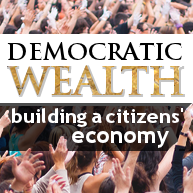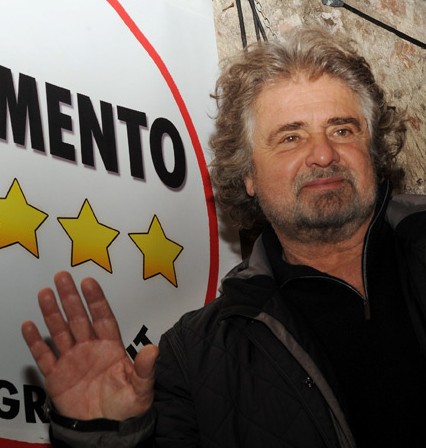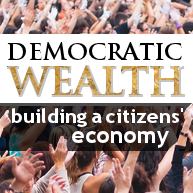
In a democracy, no decision should ever be irreversible
The British parliamentary system, inspired by John Locke, Edmund Burke, John Stuart Mill and many others who believed in a system of checks and balances to guarantee our liberties, has in the past been much admired as a model of liberal democracy, one that has enabled the peaceful evolution that has been an almost unique part of our history. Today it has been superseded. The doctrine of Jean-Jacques Rousseau, that the will of the people must always prevail, much admired by autocrats ever since the days of Robespierre and the Committee of Public Safety, now prevails in Westminster instead. Speaker after speaker in the House of Commons debates on Article 50 declared that, although he or she voted Remain and …

Democracy against the odds
Democracy in Africa: Successes, Failure and the Struggle for Political Reform testifies to the ability of African states to democratize against the odds. It effectively introduces a framework for understanding how leaders choose to respond to the pressure to liberalise their political systems, covering the recent history of African politics and providing great detail on the return of multiparty politics in Africa since the early 1990s. In this Q&A, Ian Cooper of the Department of Politics and International Studies (POLIS) at the University of Cambridge interviews Professor Nic Cheeseman, Associate Professor of African Politics, Jesus College, University of Oxford, on his recent publication.

Democracy, Development and Income Distribution
A Review of Inequality and Democratization: An Elite-Competition Approach, by Ben Ansell and David Samuels In this dense and absorbing review, Professor Ben Ansell explains how past and current models have failed to capture the paradox that development may lead to greater income inequality. He explores the roles of actors and structures in his own approach to the study of this relationship and casts a critical light on the plight of those who live in poverty despite democratization. Turning to the other end of the income spectrum, he discusses the global trend towards capital mobility and how it relates and affects different political systems. Overall, Inequality and Democratization raises a number of critical and highly relevant questions concerning the relationship between …

The misguided search for the political – Lois McNay
Max Muir speaks to Lois McNay, Professor of Political Theory at Oxford University and Fellow of Somerville College, about her new book, ‘The Misguided Search for the Political’. She argues that radical democratic theorists, in their search for the abstract essence of politics itself, have ushered in a dangerous silence on the lived experience of inequality and oppression. Without addressing the ‘social weightlessness’ of their theories, these radical democrats find their emancipatory credentials seriously undermined. Max Muir: Hi Lois, thanks for chatting with us. Your new book is called ‘The Misguided Search for the Political’. Why exactly is that search misguided? Lois McNay: The book is a reaction to something we’ve seen over the last twenty or thirty years in …
Launch of current issue of the St. Antony’s International Review (STAIR): “Power, the State and the Social Media Network”
The St Antony’s International Review (STAIR) is proud to announce the publication of its 16th issue, “Power, the State, and the Social Media Network”. The issue is available on IngentaConnect. The launch event will take place on 6 March at 6.30 pm in the Oxford Department for Politics and International Relations. In the themed section of this edition of STAIR five authors seek to shed light upon the contemporary relationship between power, the state and social media, perhaps the most pronounced and widely disseminated digital social technology the world has encountered. Supporting and affecting political movements from New York’s Zuccotti Park and Egypt’s Tahrir Square, “Facebook revolutions” and “Twitter revolutions” are conceived of as borne out of social media networks; they oscillate between the Charybdis of an anarchic freedom and the Scylla of surveilled repression, utilized by both citizens and the state. With such power, social media now holds the potential to empower and propagandize, secure and surveil, to create, and to destroy.

A democratic case for the free market?
Democracy is morally prior to the economy. The structure of the economy is something a sovereign people may and should design and redesign to secure its common good – that is, the shared interest of each and every citizen in life, liberty and economic opportunity. This is the basic premise of the ‘Democratic Wealth’ series that I have the pleasure of editing. This is, however, by no means an uncontroversial premise.

Neither Left nor Right: The rise of populist movements in Italy
When an economic crisis combines high youth unemployment and an impoverished middle class, there is a real risk of a rise in right-wing extremism. But the left/right divide does not always help to understand European populism.
The Italian case is a particularly interesting one. After Berlusconi resigned in disgrace, the main two parties (Berlusconi’s People of Freedom-PDL and the centre-left Democratic Party-PD) were left with no choice but to support a ‘truce government’ of non-politicians and technocrats, led by Mario Monti. This unlikely arrangement froze the parliamentary majority.

‘An Iron Chain of Bondage’: Lessons from the Knights of Labor
As modern workers, we have much to learn from the rich tradition of labour republicanism in America. The second piece in our Democratic Wealth series, hosted with OurKingdom. In 1828, William Heighton, a radical shoemaker, announced to a group of Philadelphia labourers that the wage-labour system “is…an iron chain of bondage. A system of unjust abstraction, oppression, and legal fraud, by which the most useful classes of society are drained of their wealth, and consigned over to eternal toil and never-ending slavery.” Heighton had just created the first formal political party of workers in modern history, the Working Men’s Party of Philadelphia.









